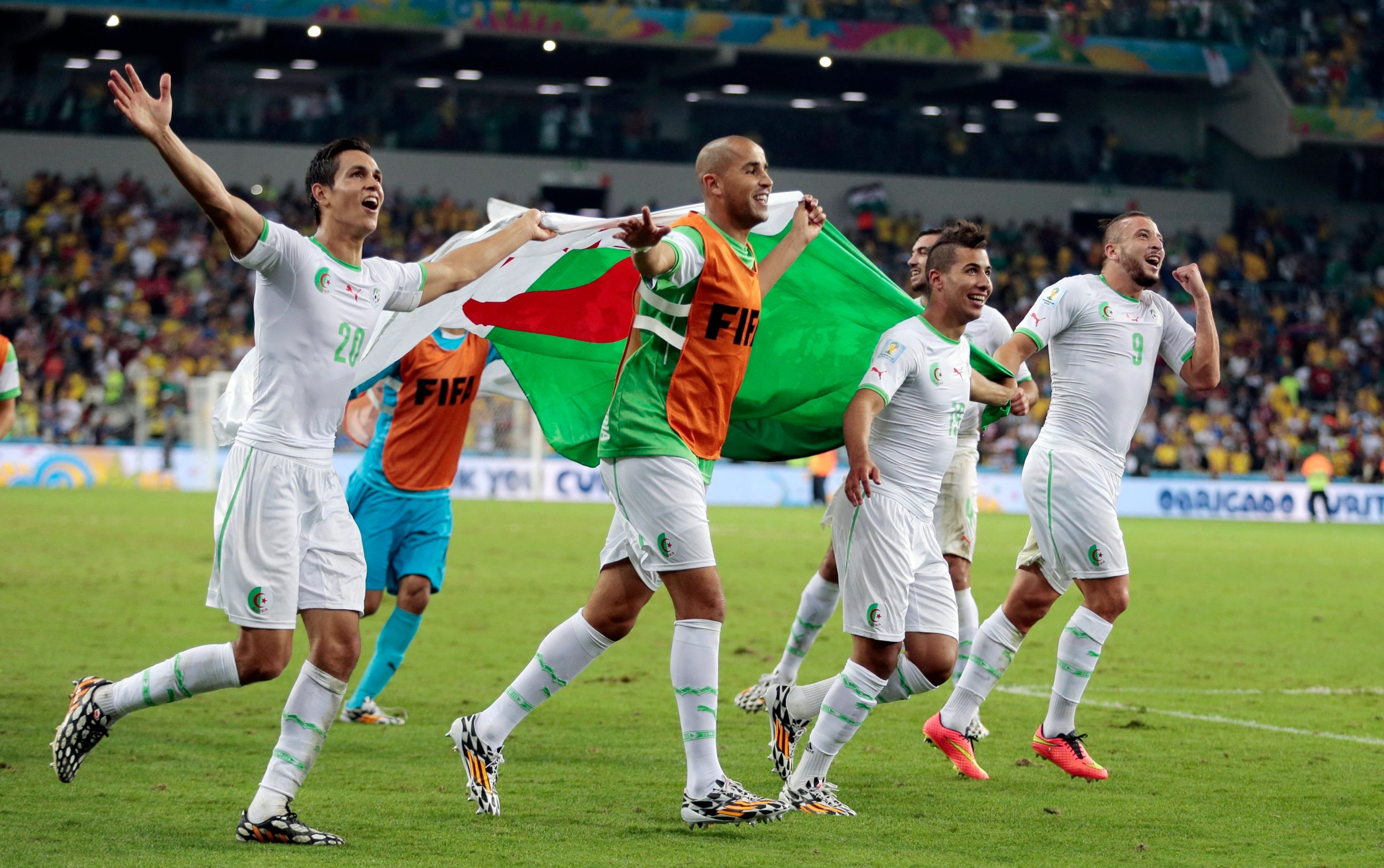
Saturday marks the beginning of the World Cup’s knockout stage, the tournament’s most ruthless — lose one game, and you go home. But it also marks the first night of Ramadan, a month-long religious fast during which many Muslims refrain from ingesting food and liquids from sunrise until sunset.
Muslim players competing in the World Cup, then, face a tough choice, as fulfilling the requirements of their religion may affect their performance on the soccer pitch. In Brazil’s timezone, believers who wish to observe the holiday will have to spend approximately 13.5 hours per day fasting. While athletes’ bodies are fine-tuned instruments, that’s still no easy feat when you’re burning up as many calories as international soccer stars do during the World Cup.
Ramadan observance could affect a decent number of World Cup teams: Among the 16 remaining squads, France, Nigeria, Belgium, Switzerland, Germany and Nigeria all have more than one Muslim on their squad, while the Algerian national team is made up exclusively of Muslim players.
Muslim players have some options, though. FIFA Chief Medical Officer Jiri Dvorak suggested at a Monday media briefing that players observing Ramadan can ask religious authorities for an exemption and make up for the missed fast days at a later time. And during the 2012 Olympics, the United Arab Emirates’ soccer team was exempted from fasting during the tournament by the country’s highest religious body.
Indeed, Germany’s Mesut Ozil, who is of Turkish descent, has already told the press that he will not take part in Ramadan because he “is working.” A spokesman for the Swiss team, meanwhile, has said that none of its players will fast during the competition.
Muslim players who do choose to fast during Ramadan and the World Cup, however, could face a tough next few weeks. While observing Ramadan, players would have to adjust their daily habits to its requirements: eating and hydrating before the sun rises and then again only after sunset. They would spend the hours in between, a period during which they may have to play a match, with no nourishment at all.
But according to research conducted by the FIFA medical team and others, fasting players can still compete at the top of their games.
“We have made extensive studies of players during Ramadan, and the conclusion was that if Ramadan is followed appropriately, there will be no reduction in the physical performances of players,” Dvorak said during the Monday media briefing. “We have done extensive studies and nothing worries us.”
And a report from the U.S. National Center for Biotechnology Information found that fasting players can take some practical steps to ensure their performance does not suffer on the pitch.
“The available evidence indicates that high-level athletes can maintain performance during Ramadan if physical training, food and fluid intake, and sleep are appropriate and well controlled,” says a 2012 report by the NCBI. “Individualized monitoring of athletes may help to prevent fatigue and overtraining and to reduce the risk of consequent illness and injury.”
That NCBI report recommends athletes observing Ramadan train close to meal times. It also emphasizes the importance of adequate sleep throughout the fast. On top of that, a separate 2013 NCBI report advises athletes to include fat in their pre-dawn meal. The immediate fluid deficit that accumulates throughout the day can usually be reversed when athletes ingest fluids at night, the 2013 report adds.
The reports do emphasize that the effects of the fast on athletes vary with the sport, the season, and athletes’ personal habits. The sweltering heat in Brazil at this time of year, it should be said, will not make observant Muslim players’ task any easier.
More Must-Reads from TIME
- How Donald Trump Won
- The Best Inventions of 2024
- Why Sleep Is the Key to Living Longer
- Robert Zemeckis Just Wants to Move You
- How to Break 8 Toxic Communication Habits
- Nicola Coughlan Bet on Herself—And Won
- Why Vinegar Is So Good for You
- Meet TIME's Newest Class of Next Generation Leaders
Contact us at letters@time.com